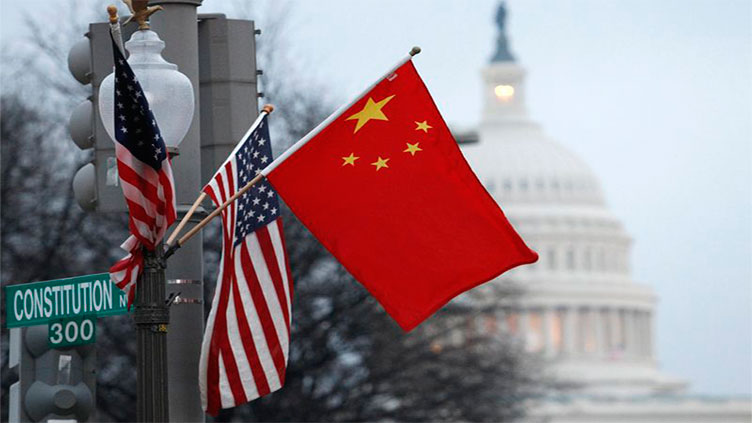U.S. stresses need for 'Cold War'-era crisis mechanisms with China

World
Efforts to build a floor under U.S.-China relations have yet to be successful.
WASHINGTON (Reuters) - Efforts to build a floor under U.S.-China relations have yet to be successful and coming months will determine if it is possible to reestablish constructive diplomacy with Beijing, a top White House official said on Thursday, stressing the need for "Cold War"-era hotlines and other crisis mechanisms.
Speaking at a time of heightened tensions with China over a U.S. stopover by Taiwan's president, U.S. Indo-Pacific coordinator Kurt Campbell said Washington had made clear to Beijing it was ready to have another call between President Joe Biden and Chinese leader Xi Jinping.
"We're prepared and, from our perspective, we want to keep lines of communication open and it is our intention to keep those lines open," he said at an event hosted by the Center for a New American Security (CNAS) think tank.
Biden said last month after a U.S. fighter jet shot down a suspected Chinese spy balloon that he planned to speak to Xi about the episode and clear the air, but this has yet to happen and tensions have only risen since.
Campbell said the Chinese had been "reluctant to engage in discussions around confidence-building or crisis communications, or hotlines" and it would be a "responsible step" to have such mechanisms, given that Chinese and U.S. military forces operated in proximity to each other.
"We built those during the Cold War. We think that they're appropriate now," he added.
Campbell said the U.S. was in the early stages of a new phase of competitive relations with China.
"There's also a recognition that in many respects our efforts to build a foundation, a floor under the relationship and guardrails, have yet to be successful," he said, referring to U.S. priorities when Biden and Xi last spoke at a meeting in Bali in November.
"I think you will see in the coming months whether it's going to be possible to reestablish effective, predictable, constructive diplomacy between the United States and China.”
Taiwan's President Tsai Ing-wen arrived in New York on Wednesday on her way to Central America. On her way back to Taipei next week, she will stop in Los Angeles, where she is expected to meet U.S. House of Representatives Speaker Kevin McCarthy, an interaction China has warned could lead to a "serious confrontation" in U.S.-China relations.
The visit comes at a time when U.S. relations with China are at what some analysts see as their worst level since Washington normalized ties with Beijing in 1979 and switched diplomatic recognition from Taipei.
Campbell said the United States was stepping up its focus on the Indo-Pacific in spite of the war in Ukraine and this would been seen in its budgets, engagements, aid and assistance.
He pointed to India, which is due to take part in another summit of the so-called Quad countries in Australia expected in May, and said he believed its relationship with the United States was the most important of the 21st century.
"I believe we are destined to work more closely together,” he said, adding that Washington wanted to see more Indian students in American universities and more Americans in Indian colleges.
Campbell said the United States has an "ambitious agenda" for the Asia-Pacific Economic Cooperation (APEC) forum summit it hosts in November, and Biden would roll out steps to address U.S. determination to play not just a security, diplomatic and political role in the region, "but a vibrant economic and commercial role as well."

